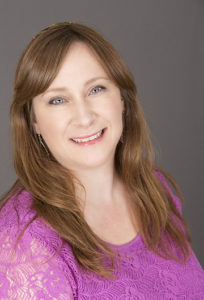 By Rabbi Robin Sparr, from our February Bulletin: Our tradition teaches us that we are not expected to go it alone, but are instead urged to seek out support.
By Rabbi Robin Sparr, from our February Bulletin: Our tradition teaches us that we are not expected to go it alone, but are instead urged to seek out support.
From the earliest stories in the Torah, beginning with Adam and Eve, we are taught we need a partner. For many, that partner is a spouse, but for others, and at various times in our lives, it is a best friend, a sibling, or a colleague.
From the Talmud, we learn “Aseh l’cha rav, uk’neh l’cha chaver” – find yourself a teacher, and acquire for yourself a friend. Rambam explains that we must find a mentor – one with whom we can study and debate and who will help guide us – and also a study partner – who may be of greater, equal or lesser learning than ourselves – because examining a topic with a partner helps us to better understand and clarify the issue.
In Exodus 18:18-23, Jethro, Moses’ wise father-in-law, observes firsthand the burden of administrating a nation and adjudicating their seemingly endless disputes. Jethro tells him, “The thing that you do is not good. You will certainly wear away, both you, and this people who are with you; for this thing is too heavy for you; you are not able to perform it yourself alone.” He advises Moses to shift the simpler tasks onto other wise leaders. Subsequently God gives Moses more specific advice, to set up a counsel of 70 elders to help manage the people.
In Pirkei Avot 2:5, Hillel counsels: “Do not separate yourself from the community; and do not trust in yourself until the day of your death.” While these words have in recent generations been invoked as an inducement to join a synagogue, the intention seems to be broader than that – being part of a Jewish community is vital, not only to the community’s survival, but to our own. We require social constructs (such as synagogues, JCC’s, and social justice organizations) to succeed in the world and fulfill a variety of mitzvot, and they need our energy to accomplish their missions. In Hillel’s second statement, we are again reminded that we cannot simply rely on our own subjective views, but we must seek feedback and advice from others.
Many of us feel overwhelmed, at times, by the competing demands on our energy, time, and capabilities. Sometimes we think, “Okay, I’ve got this!” but then discover we’ve underestimated the task, or we don’t realize we are over our heads until we become paralyzed by its magnitude. We say “yes” when we should say “no,” we feel obliged to represent ourselves as a little more qualified than we might actually be, we fail to adequately calculate the time a task will require.
What are we to do when we suddenly awake to the reality that we’ve overextended ourselves and cannot possibly fulfill the obligation we’ve accepted? Sometimes, we simply try to power through – pull the all-nighter, skip meals, relegate other tasks to the back of the pile – and somehow pull it off. However, this is generally not in the best interests of our physical or mental health, and leads to further stresses down the line.
Try to take a moment to evaluate the task. Are there parts you can jettison? Items you can delegate to another? Stuff that really just isn’t that important? Let it go. Remember that you are valued for who you ARE, not just what you DO, and that only by caring for yourself can you truly, effectively, and wholeheartedly care for others and achieve your most valued goals.
Even though it can be difficult or painful, communicate that you’ve taken on too much. Let those who are waiting on your work know that it will be delayed or not forthcoming. Remember that, even though someone may react negatively to your inability to complete a promised task, in the long run, your honest appraisal of what is reasonable and possible will preserve your relationships, and yourself.
All of us are blessed to be members of a holy community at TEMV, and are also members of other circles and groups. A single person can change the world, but cannot do so without the support and energies of others.
Here is the most important thing: Ask for help. Share the burden. Invite others to step in – many people want to help, but aren’t sure what is needed – by articulating your need, you not only lighten your own load, but provide an opportunity for another to do a mitzvah and enjoy the satisfaction of knowing they’ve been of use. Gather together a committee, or circle of friends or loved ones, or even just one trusted friend or mentor, to help you solve a problem or break down a larger task.
Like grapes that grow in clusters on a vine, we, too, live in communities essential to our well being. May we each find the both the inner strength and inner vulnerability to reach out to one another to request, and to offer, the supports every one of us needs.
L’shalom,
Rabbi Robin S. Sparr
